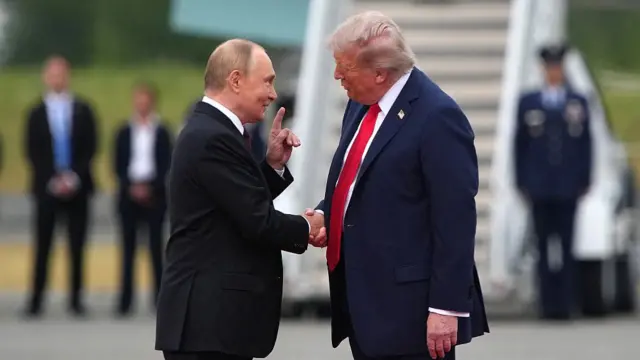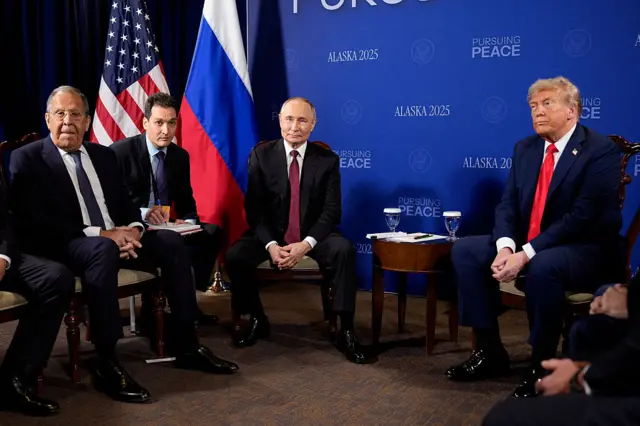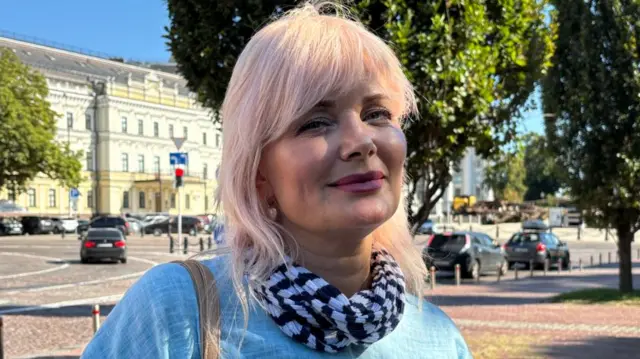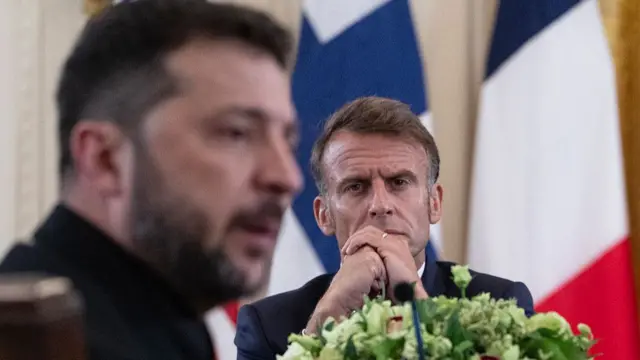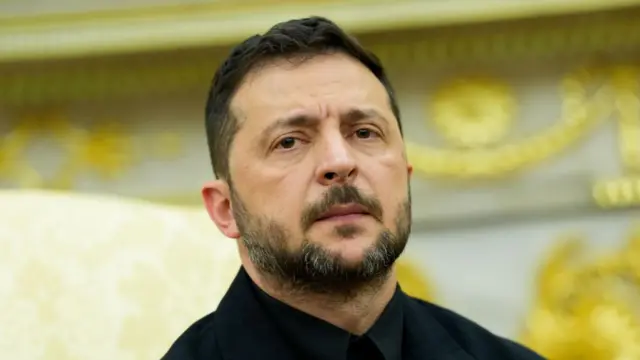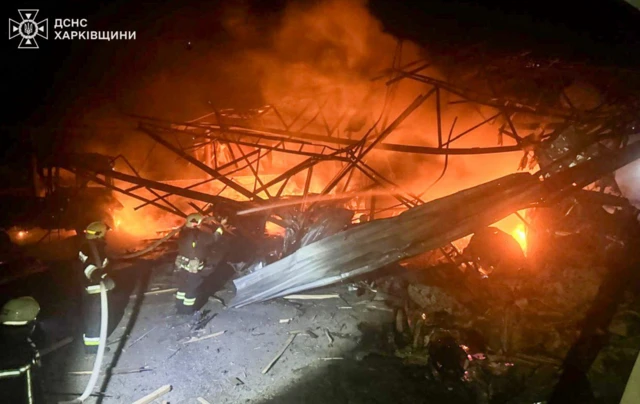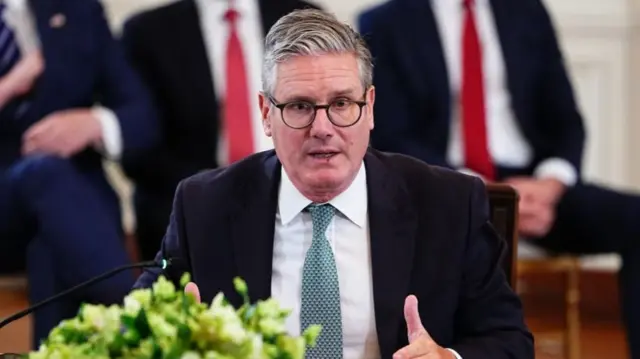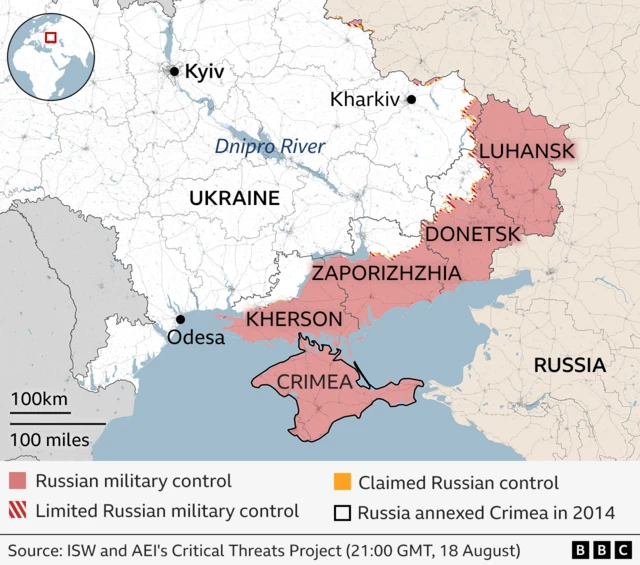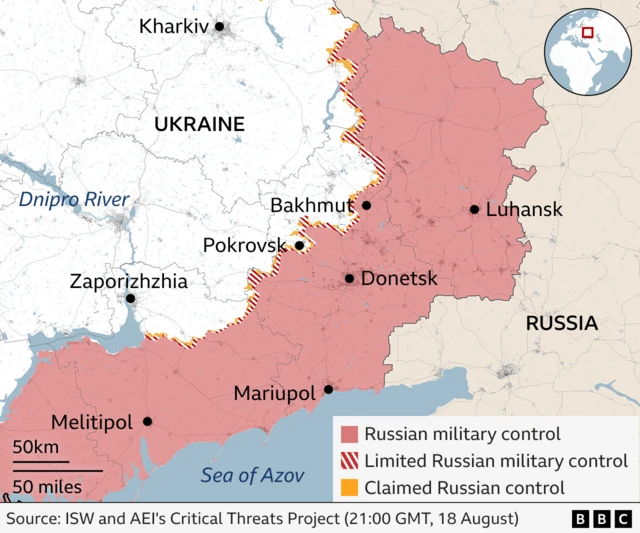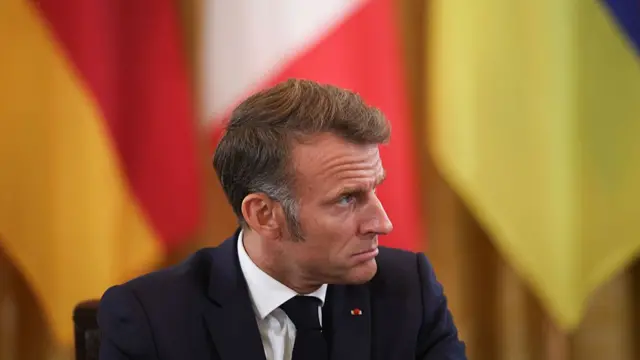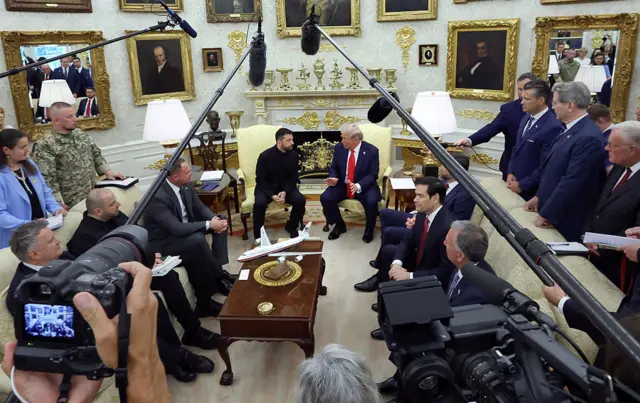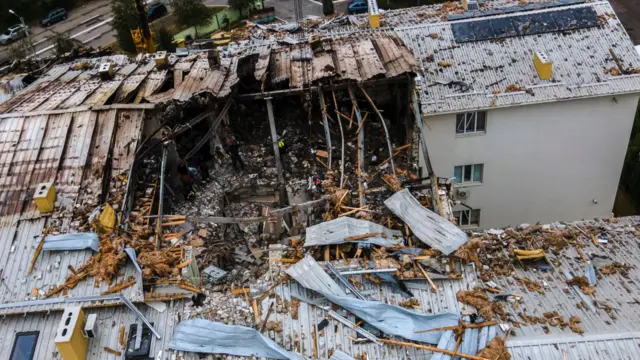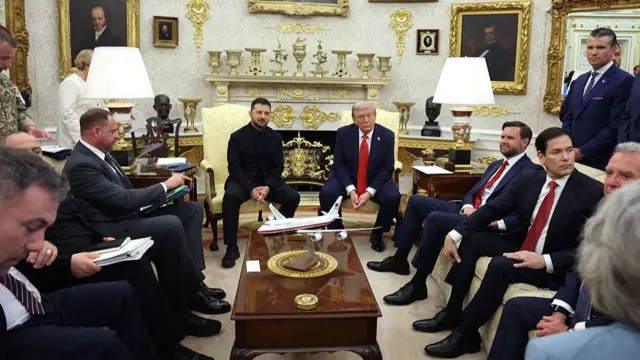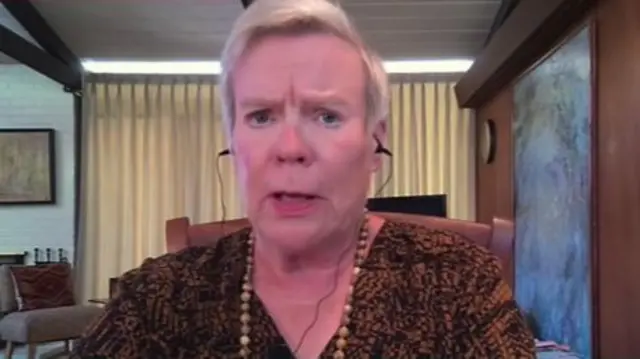'It is very painful to watch all this happening,' says Donbas nativepublished at 11:59 BST 19 August
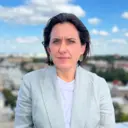 Katy Watson
Katy Watson
Reporting from Kyiv
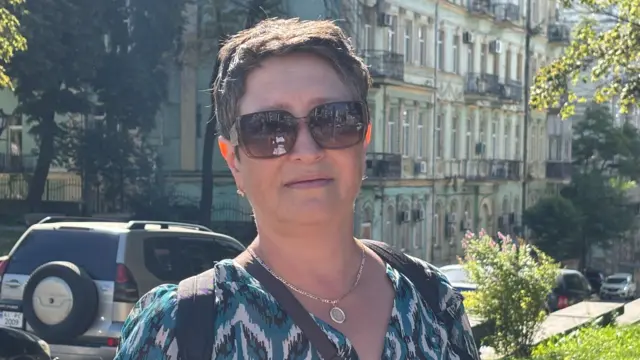 Image source, BBC / Alba Morgade
Image source, BBC / Alba MorgadeViktoria left the Donbas when the front line was getting closer to where she lived
For 57-year-old Viktoria, a Kyiv resident originally from the Donbas in the east of Ukraine, the Washington talks were a step in the right direction.
“There are at least some issues in common,” Viktoria tells me.
European leaders and the US reassured Ukraine that security guarantees were a priority. But, Viktoria believes finding peace will be harder.
“The gap between Russian desires and Ukrainian ones is too big,” she says wistfully. “It’s very painful to watch all this happening.”
One of the biggest sticking points is talk of Ukraine giving up land to Russia in return for a halt in fighting.
In the days running up to the talks in Washington, there were reports that Donald Trump would ask Ukraine to cede the Donbas in the east of the country - made up of the regions of Donetsk and Luhansk.
Viktoria came to Kyiv last August from Selydove in the Donetsk region - she moved because the front line was getting too close to where she lives but she hopes it’s a temporary move.
“I want to return to Donbas,” she says. “I want to be in my own, Ukrainian Donbas. In a peaceful, native Donbas with [Russian] neighbours - because we live side by side.”
